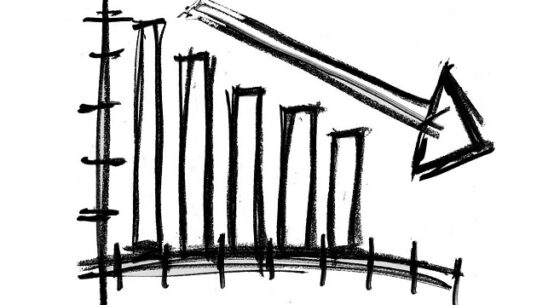We are witnessing the demise of the “superpowers”.
Calm down Marvel comic fanatics, I’m not channelling the ornery US director Martin Scorsese and his churlish dismissal of the popular film franchise that dominates the box office as “not cinema” – although, I agree, it is anti-art junk.
I am, instead, alluding to the, by now, obsolete term that has been a stubborn fixture of the geopolitical nomenclature – particularly in the military context – since perhaps the end of World War II.
By “superpowers”, I mean, of course, the “major” powers who were transformed into “super” powers by virtue of building a vast arsenal of redundant nuclear weapons in addition to amassing a huge cache of conventional arms.
Here is a little list of the fleeting superpowers in order, arguably, of their “superpower” status: The United States, China, Russia, and the United Kingdom. The quartet’s combined military spending in 2020 was more than $1.15 trillion, with America accounting for $778 billion of that halting amount of money.
Let’s set aside China for the moment to consider the following question: from the outset of the 21st century, what do the US, British and Russian “superpowers” have in common militarily?
That’s right. In spite of widespread and boisterous opposition in the streets by millions of concerned, non-think-tank citizens and more demure diplomats at the United Nations – including, at times, from the US, the UK and Russia – the axis of stupid invaded Iraq, Afghanistan and Ukraine for familiar made-up reasons.
After being warned repeatedly that their so-called “liberations” would turn into self-inflicted quagmires, cocksure US, British and Russian leaders had their imposing cavalries charge ahead with the blessing and encouragement of much of the complicit domestic press.
Well, the “superpowers” and their high-profile gallery of chastised cheerleaders in pinstripes have failed. The US and the UK were not only defeated by patient and potent insurgencies in Iraq and Afghanistan, but were also forced to pack up their formidable “superpower” hardware and head home – beaten, humbled, and sullied.
The ex-second-tier KGB agent and failed student of history, Vladimir Putin, ought to have understood – given the folly of George Bush Jr and Tony Blair – that what you think will happen when a “superpower” invades, by comparison, a minnow nation and what actually happens bear scant resemblance to one another.
Being a “superpower” is not a guarantee of victory.
Putin didn’t need to watch Bush’s and Blair’s imperialist designs self-destruct to understand that “superpower” invasions often don’t succeed.
All he had to remember was the disastrous nine-year-long misadventure started by Soviet leader Leonid Brezhnev in December 1979 to prop up a decrepit communist regime in Kabul in the determined face of indigenous guerillas.
Somehow, Putin forgot or dismissed that instructive blunder which resulted in a vanishing superpower’s retreat and disgrace. What’s even more perplexing is that rather than rejecting his predecessor’s ruinous hubris, the Russian president embraced it by launching a useless war in Ukraine that has slaughtered so many innocents.
The stirring images of liberated Ukrainians embracing their country’s soldiers in the jubilant streets of Kherson are moving testament to the power of dogged resistance over ephemeral “superpower” might.
Still, Putin clings to the comforting illusions of power and prestige associated with leading a long-lost superpower like a toddler holding tight to a frayed security blanket.
It was the devout Cold War warrior, President John F Kennedy, who realised – in the aftermath of his calamitous decision to let the CIA lead a failed invasion of Cuba in 1961 – that remaining wedded to the “superpower” myth invites miscalculation and calamity.
“The great enemy of truth is very often not the lie – deliberate, contrived, and dishonest, but the myth – persistent, persuasive, and unrealistic […] We enjoy the comfort of opinion without the discomfort of thought,” Kennedy said while delivering the commencement address at Yale University on June 11, 1962 – a few months shy of the Cuban Missile Crisis.
Bush, Blair and Putin believed in myths at the expense of the “discomfort of thought” and the world knows the litany of disfiguring consequences.
A measure of just how thoughtless and impotent the Russian “superpower” has become is the lunatic chatter about a “limited” nuclear strike on Ukraine.
The intent, I suppose, is to telegraph to Kyiv, London, Berlin, Paris, and Washington that Moscow not only remains the undisputed “boss” in the region, but is prepared to use the A or H bomb to save its floundering, incompetent army from further drubbing.
I think for all their choreographed bluster and training exercises, Putin and company recognise that attacking Ukraine with tactical nuclear missiles would constitute an unfathomable war crime. It would be an admission, as well, of defeat by the president of a spent and bankrupt “superpower” that, given the prevailing winds, would risk contaminating itself from the lethal fallout for decades.
In all likelihood, such madness would trigger a response in kind and then the proverbial dominoes would begin to fall quickly and take the rest of us into the abyss.
Meanwhile, in August, China was “outraged” that US House Speaker Nancy Pelosi visited Taiwan’s president, cautioning the US that it was “playing with fire”.
Despite the predictable posturing and subsequent display of perfunctory force, China, the “superpower”, recognises the limits of its power. An invasion of recalcitrant Taiwan would mirror – in human costs and futility – the invasions of Iraq, Afghanistan and Ukraine.
China’s calculating president, Xi Jinping, does not strike me as a man attracted to or moved by the fiction of superpower invincibility.
China may bark. Unlike the US, the UK and Russia, it won’t bite.
Andrew Mitrovica is an Al Jazeera columnist based in Toronto

